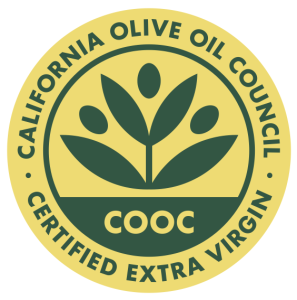Yosemite Clean Energy Receives $300,000 Wood Innovations Grant From USDA Forest Service for Colorado Plant
YOSEMITE VALLEY, Calif., September 12, 2024 (Newswire.com) - Yosemite Clean Energy, LLC, a leading provider of sustainable energy solutions, proudly announces that it has been awarded a $300,000 grant from the USDA Forest Service Wood Innovation Fund. This funding will support Yosemite in conducting a feedstock analysis and a pre-engineering study to develop a wood waste biomass-to-biofuel gasification plant in the San Luis Valley, Colorado. The grant is made possible by the Bipartisan Infrastructure Law (BIL). Yosemite is one of 171 projects nationally to receive funding, with $74 million in grants awarded to projects that support forest health and the wider forest economy, particularly those assisting rural communities.
Yosemite is developing the biofuels project in collaboration with federal USDA Forest Service managers, SEED (Sustainable Environmental Economic Development) Park International, and private lumber and timberland owners through a local business partnership model and working with local businesses and landowners. Yosemite brings value to woody biomass, incentivizing good forest stewardship at the local level, providing new jobs in the forest economy, and offering cost savings for land managers implementing forest fuel treatments that reduce the risk of catastrophic wildfires. Yosemite uses proven Austrian-based gasification technology commercialized by Aichernig Engineering GmbH (Repotec) and partnered with Bioenergy Sustainable Technologies GmbH (BEST), which has over 20 years of commercial gasification development experience. The project will explore the most viable market in Colorado to produce carbon-negative hydrogen or alternative biofuels such as sustainable aviation fuels, methanol or renewable natural gas.
This grant represents the USDA Forest Service’s recognition of Yosemite’s commitment to shared ideals, supporting local industries to reduce fire risk while simultaneously meeting the federal government’s decarbonization goals.
“It’s great to get a nod from so many government funders, and we hope to keep momentum as we build out our company vision, especially for a project in Colorado,” said Thomas Hobby, CEO of Yosemite Clean Energy.
The Colorado plant will use up to 100,000 bone-dry tons of wood biomass within the San Juan, Rio Grande, and Gunnison National Forests region. It will support local and federal forest land managers in reducing the threat of catastrophic wildfires, which have threatened many Colorado communities. Yosemite will support many forest fuel reduction projects across the region, helping to thin up to 5,000 acres per year. The Colorado San Luis Valley site is the latest addition to Yosemite’s rapidly expanding list of projects, which includes several biomass-to-hydrogen facilities in California and the expansion and development of projects to co-produce RNG, hydrogen, SAF or other e-fuels. Yosemite’s bottom-up approach and community-led philosophy aim to span a portfolio of locally owned projects across the United States.
The first flagship project, located in Oroville, California, is projected to be commissioned in 2027 and will produce carbon-negative hydrogen for use in the zero-emission heavy mobility sector, including heavy-duty trucks, buses, trains, cars, and ships. Yosemite’s process captures carbon dioxide, sequestering a portion of the CO2 and utilizing a portion for alternative industrial uses within the food sector or e-fuel markets. Yosemite projects also help reduce open burning and lower particulate 2.5 emissions, directly benefiting public health.
Yosemite envisions a national network of biofuel production facilities linked via its “stump to pump” vertical integration, including hydrogen mid-stream and downstream fueling solutions and a network of hydrogen fueling stations operated by its subsidiary Yosemite Fuels (www.yosemitefuels.com).
Source: Yosemite Clean Energy, LLC
